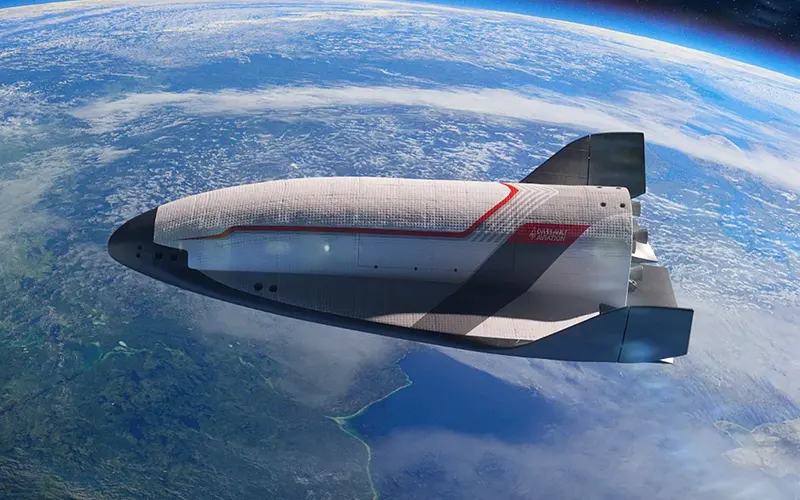 Credit: Dassault Aviation
Credit: Dassault Aviation
Dassault Aviation Chairman and CEO Eric Trappier has revealed that the company expects its VORTEX spaceplane project to be adopted as a European Space Agency programme as early as next year.
During the Paris Air Show in June, Dassault revealed the development roadmap for its VORTEX spaceplane, short for Véhicule Orbital Réutilisable de Transport et d’Exploration (Reusable Orbital Transport and Exploration Vehicle). At the same event, the company signed a contract with the French Ministry of the Armed Forces for the development of its initial demonstrator, called VORTEX-D.
While the June announcement included few details, a 25 June hearing of the French National Assembly’s Committee on National Defence and the Armed Forces revealed that the mission is expected to be launched in 2027 aboard a Rocket Lab Electron rocket. The hearing also disclosed that the demonstration mission has a total budget of €70 million, with Dassault providing more than half of the funding and the remainder coming from the French government.
While this initial phase of the spaceplane’s development is being funded by Dassault and the French Armed Forces, the company is seeking broader European support for the programme.
Speaking during the company’s half-year earnings press conference, Dassault CEO Eric Trappier was asked whether he would like VORTEX to be adopted as a European Space Agency programme. He stated outright, “Yes.” He added that they anticipated securing a firm contract with the agency as early as next year.
According to Trappier, the company began discussions with the agency several years ago. He noted that ESA had responded positively to the French government’s decision to support the project, emphasising that national backing is a necessary step before broader European support from ESA Member States can be secured. Trappier added that when it comes to developing space capabilities in Europe, going it alone “isn’t easy.”
